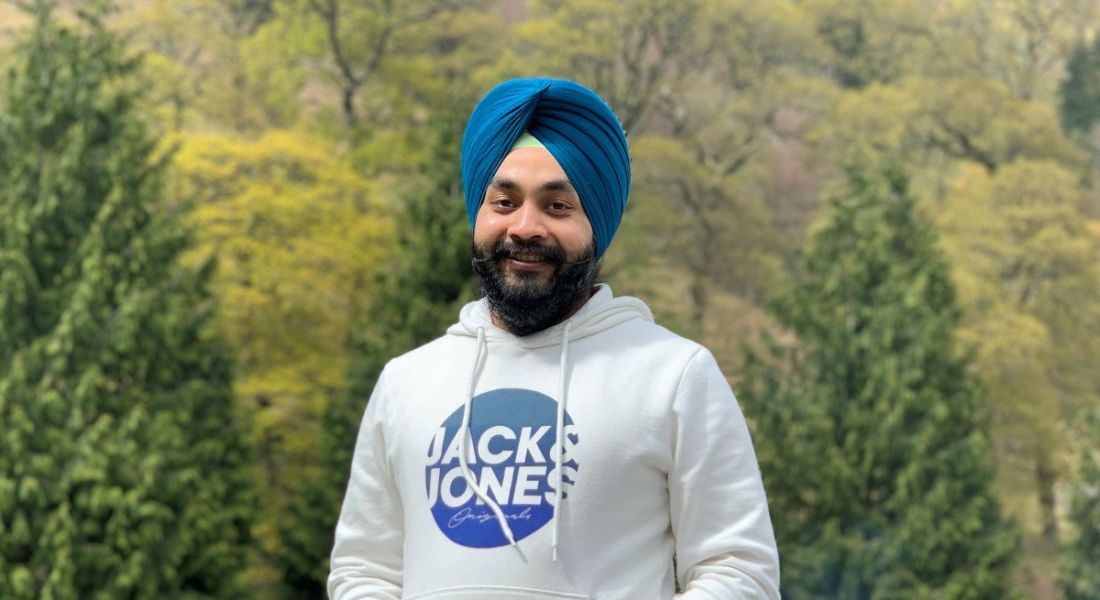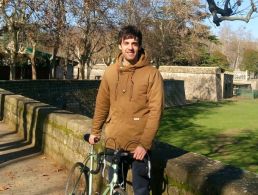Simranjeet Singh gives some advice for newcomers to the world of data science and shares his top tips for staying productive day to day.
Simranjeet Singh is a senior data science and engineering consultant with KPMG. The types of project he works on range from simple data exploration to complex ones using graph convolutional networks or generative adversarial networks (GANs).
These are powerful neural network architectures used for machine learning on graphs. Singh told SiliconRepublic.com that one of the best parts of data science is that there is always something emerging that can be used to make a solution more efficient.
“In the past, I have worked on GANs and published a paper in a conference about its use in generating synthetic data with the minimal amount of training,” he said. “It was an interesting solution where I learned the power of artificial intelligence.”
‘It is OK if you must answer ‘I don’t know’ to some of the questions’
– SIMRANJEET SINGH
If there is such a thing, can you describe a typical day in the job?
My day starts with couple of stand-up meetings where we discuss any roadblocks from previous day and roadmap ahead. We brainstorm on ideas to use in our solutions.
Then rest of the day is just implementing those ideas with a few calls with colleagues to help each other out. I write tasks of the day on paper and then prioritise them based on the deadline and amount of development time each of them needs to manage my workload.
On a normal day, I use Python and SQL to explore and analyse the data. Google is a must-use and always a handy tool, no matter what project or programming language I work on. I end my day with a summary of my work done so far and work to be focused on for tomorrow.
What skills do you use on a daily basis?
Focus is the key skill that’s very useful while on a deliverable. I usually work in sprints and take short breaks after 30 minutes for a minute or two. In those two minutes, I walk around my desk to stretch my legs and brainstorm on my ideas.
I usually keep a pseudocode diagram on my notepad for the solution I’m implementing. It keeps my strategy simple and concise and also helps me in not driving any unnecessary complicated logics.
Outside of this, data exploration and engineering are the skills I use most. Between 70pc and 80pc of my efforts on a project are in data analysis, cleaning and transforming the data that will be used as an input to the model.
So, understanding your data is the most critical exercise. Combining focus and data engineering skills drives you to a customer-specific efficient solution.
What are the hardest parts of working in data science?
Distractions. I’m very specific on keeping myself away from any distractions while I’m working, especially I keep my phone away and on silent.
Social media is the biggest distraction in a professional’s life. Earlier in my career, I would easily end up spending 30 to 40 minutes on social media when I would pick my phone just to look at my messages.
I have improved a lot since then and have learned the hard way that social media during business hours is toxic. Now it has become my habit to use social media only when I need to connect with someone.
The other hard part is keeping yourself up to date within this data science space. We need to understand and make peace with the fact that you cannot know everything. It is OK if you must answer ‘I don’t know’ to some of the questions.
I have seen professionals bringing their ego to the job and they end up ruining relationships with their colleagues and clients. At the end of the day, data science is an ocean, and you cannot fit an ocean in a bucket.
Other than that, I really keep a close eye on my work-life balance and usually finish my work in business hours only. The only times I work after office hours is when I stumble upon any interesting topic and I know that curiosity won’t let me sit in peace until I get a basic understanding of it.
Do you have any productivity tips that help you through the day?
This may not apply to everyone, but meditation does work for me to a great extent. It increases my focus power and keeps my health in check.
Do make a habit of keeping a roadmap for your entire day on what tasks you need to work on.
Stay away from social media and other distractions.
Give yourself a break for two minutes after every 30 minutes. This will clear your head and refresh your thinking ability, plus your eyes need a break too.
Lastly, don’t push yourself too hard and do not try to learn multiple techs at the same time. Remember, it is always okay to say, ‘I don’t know’ and make a note of it to google it later.
What skills and tools are you using to communicate daily with your colleagues?
It’s usually MS Teams for office meetings with colleagues and clients.
We do have a social group outside of office tech (on WhatsApp) and do laugh with some IT jokes and memes. That is also used as a planner for a weekend meet-up.
How has this role changed as the data science sector has grown and evolved?
It has evolved a lot. When I started my career, data engineer and data scientist were not popular titles. I was an ETL developer back then and it was cool to be one.
Since then, I have seen both titles and tools evolve from being a regular developer to the sexiest job of 21st century. Of course, with the evolving industry, I had to learn new tech and tools to keep myself employable.
Cloud infrastructure has become the priority focus for organisations. Companies now want to use their data more than ever to increase their customer base.
With the amount of data we generate every day, in combination with the enormous processing power our computers have, imagination is the only limit to what we can hope the future holds for us. I personally believe that this is just the beginning.
What do you enjoy most about working in data science?
I enjoy deriving insights from raw data. I enjoy when we join our business knowledge with the data, we bring out the information which is changing the world around us.
I consider myself grateful that I’m part of this industry and this era, where innovation is at its peak.
What advice would you give to someone who wants to work in data science?
I would advise to newcomers to not join this industry just because you’ve heard from your peers that this is the hottest field. Only dive into this if you feel from within that you want to do this.
Always follow your passion, no matter what field it is in. I believe that innovation is happening in each and every sector. So be a part of the industry you feel you will be more beneficial to.
To any newcomers in data science, please do not get thrown by the myth that data scientists only work on machine learning models and nothing else.
Learn as much as you can in data exploration and engineering. Early in your career, you will focus and work on these skills alone. You will learn about practical implementation on models as you grow in your role.
Also, earning a certification in cloud technologies would help in establishing a firm foundation for your future.
Don’t miss out on the knowledge you need to succeed. Sign up for the Daily Brief, Silicon Republic’s digest of need-to-know sci-tech news.




